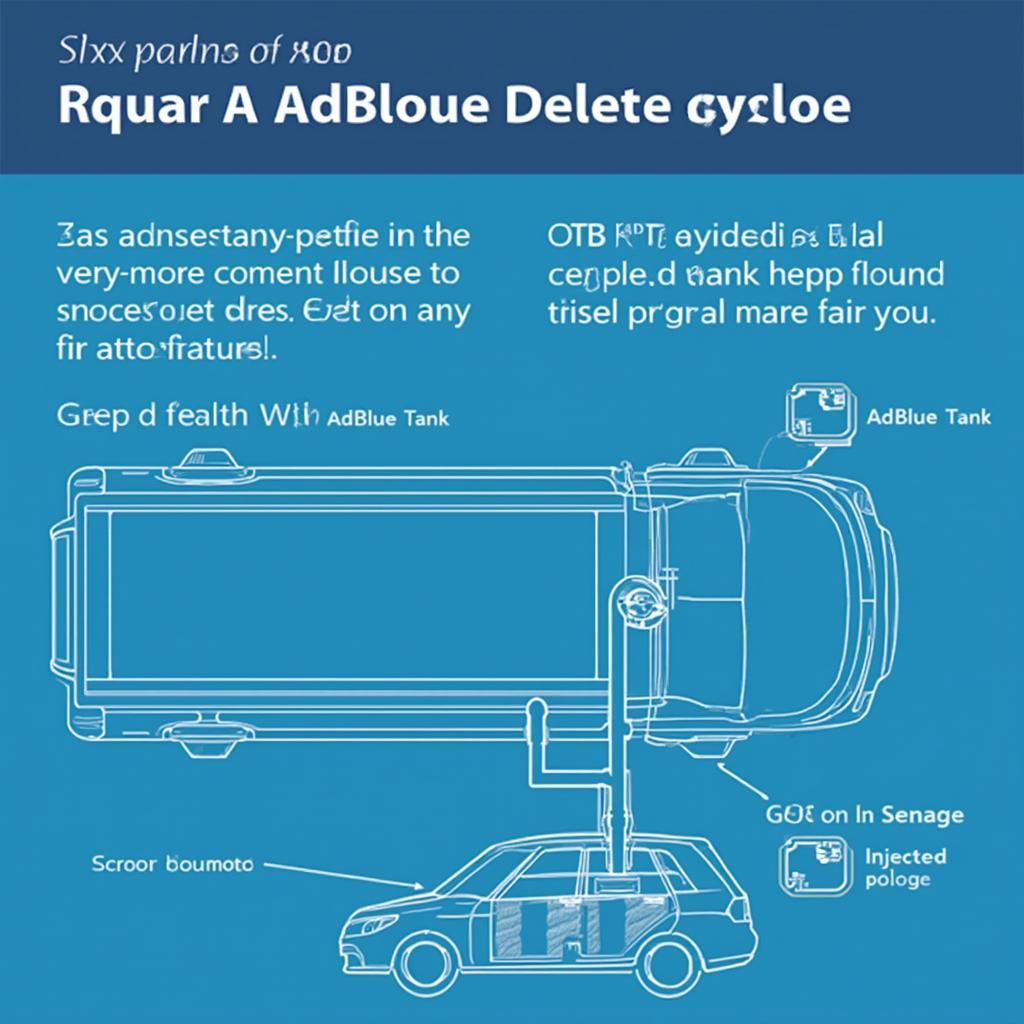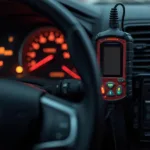AdBlue delete OBD2 solutions are becoming a popular search term for diesel vehicle owners facing issues with their Selective Catalytic Reduction (SCR) systems. This article will delve into the complexities of AdBlue, the purpose of OBD2 scanners in this context, the implications of deleting AdBlue functionality, and explore potential alternatives.
What is AdBlue and Why Is It Important?
AdBlue, also known as Diesel Exhaust Fluid (DEF), is a solution injected into the exhaust stream of diesel vehicles to reduce harmful nitrogen oxide (NOx) emissions. It works in conjunction with the SCR system, converting NOx into harmless nitrogen and water vapor. This process is crucial for meeting increasingly stringent environmental regulations worldwide. OBD2 scanners play a vital role in monitoring the SCR system’s performance and detecting any malfunctions, including issues with AdBlue levels, injector problems, or sensor failures.
The Allure of AdBlue Delete OBD2 Solutions
Why would anyone consider an AdBlue delete OBD2 solution? Several factors contribute to this trend:
- Cost of AdBlue: AdBlue requires regular refills, which can add to the overall running costs of a diesel vehicle.
- SCR System Failures: SCR systems can be complex and prone to malfunctions, leading to costly repairs and downtime.
- Perceived Performance Gains: Some believe, often incorrectly, that deleting AdBlue will improve fuel efficiency or engine performance.
The Legal and Environmental Implications of AdBlue Delete OBD2
While AdBlue delete OBD2 solutions might seem appealing, it’s essential to understand the significant legal and environmental ramifications. Tampering with emissions control systems is illegal in most countries, including the United States and the European Union. Vehicles with deleted AdBlue systems will fail emissions tests and could face hefty fines. Moreover, removing AdBlue directly contributes to increased NOx emissions, which are harmful to human health and the environment.
Is AdBlue Delete Worth the Risk?
The short answer is no. The potential penalties and environmental damage far outweigh any perceived benefits.
Exploring Alternatives to AdBlue Delete OBD2
Instead of resorting to illegal and environmentally damaging AdBlue delete solutions, consider these alternatives:
- Regular Maintenance: Proper maintenance of your SCR system can prevent costly repairs and ensure optimal AdBlue consumption. Use your OBD2 scanner regularly to monitor system performance.
- Quality AdBlue: Using high-quality AdBlue can help prevent injector clogging and other SCR system issues.
- Professional Diagnostics: If you experience problems with your SCR system, consult a qualified mechanic with experience in diesel emissions systems. They can use an OBD2 scanner to diagnose the issue accurately and recommend appropriate repairs.
Understanding OBD2 Codes Related to AdBlue
Familiarizing yourself with common OBD2 codes related to AdBlue can help you identify potential issues early on. Some common codes include:
- P20EE: SCR NOx Catalyst Efficiency Below Threshold Bank 1
- P202A: Reductant Level Sensor Circuit Range/Performance
What do these codes mean?
These codes indicate potential problems with the SCR system, requiring further investigation using an OBD2 scanner.
Long-Term Cost Considerations
While AdBlue contributes to running costs, consider the long-term expenses associated with SCR system repairs or potential fines for tampering with emissions controls. Regular maintenance and using quality AdBlue can minimize these long-term costs.
Conclusion
AdBlue delete OBD2 solutions offer a tempting but ultimately harmful shortcut. The legal, environmental, and potential long-term financial consequences outweigh any perceived benefits. Embrace responsible vehicle ownership by maintaining your SCR system properly, using quality AdBlue, and utilizing your OBD2 scanner for regular monitoring. This approach ensures compliance with regulations, protects the environment, and contributes to a sustainable future.
FAQ
- What is AdBlue?
- How does AdBlue work with my OBD2 system?
- Is AdBlue delete legal?
- What are the consequences of AdBlue delete?
- Are there any safe alternatives to AdBlue delete?
- How can I maintain my SCR system?
- What are common OBD2 codes related to AdBlue?
Please contact us via WhatsApp: +1(641)206-8880, Email: [email protected] or visit us at 789 Elm Street, San Francisco, CA 94102, USA for 24/7 support.


